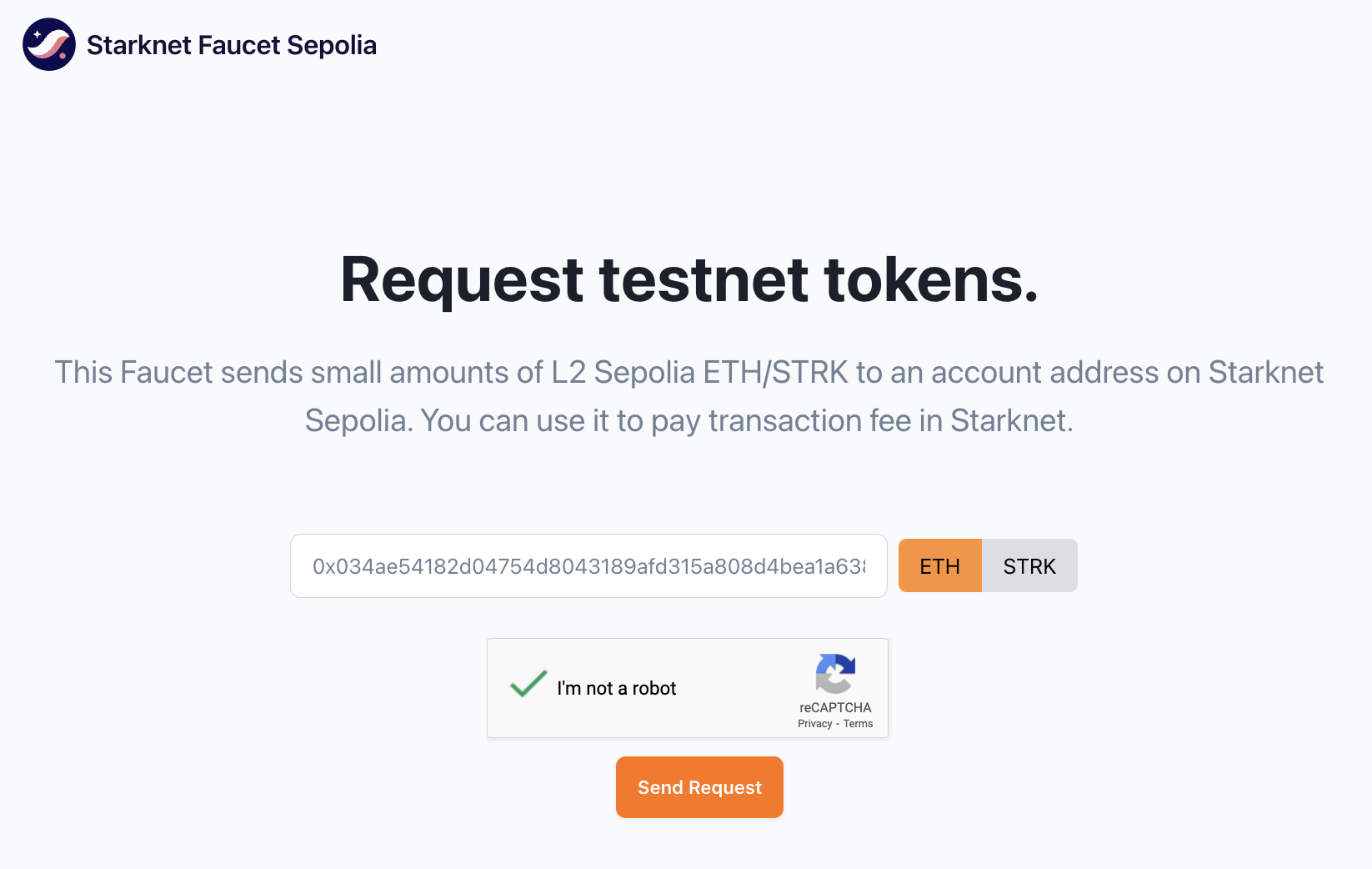Creating And Deploying Accounts
Account is required to perform interactions with Starknet (only calls can be done without it). Starknet Foundry sncast
supports
entire account management flow with the sncast account create and sncast account deploy commands.
Difference between those two commands is that the first one creates account information (private key, address and more) and the second one deploys it to the network. After deployment, account can be used to interact with Starknet.
To remove an account from the accounts file, you can use sncast account delete. Please note this only removes the
account information stored locally - this will not remove the account from Starknet.
💡 Info Accounts creation and deployment is supported for
- OpenZeppelin
- Ready (with guardian set to 0)
- Braavos
Examples
Creating an Account
Do the following to start interacting with the Starknet:
Create account with the sncast account create command
$ sncast \
account create \
--network sepolia \
--name new_account
Output:
Success: Account created
Address: 0x[..]
Account successfully created but it needs to be deployed. The estimated deployment fee is [..] STRK. Prefund the account to cover deployment transaction fee
After prefunding the account, run:
sncast --accounts-file [..]accounts.json account deploy --url [..] --name new_account
To see account creation details, visit:
account: https://sepolia.voyager.online/contract/[..]
For a detailed CLI description, see account create command reference.
See more advanced use cases below or jump directly to the section here.
Prefund generated address with tokens
To deploy an account in the next step, you need to prefund it with STRK tokens (read more about them here). You can do it both by sending tokens from another starknet account or by bridging them with StarkGate.
💡 Info When deploying on a Sepolia test network, you can also fund your account with artificial tokens via the Starknet Faucet
Deploy account with the sncast account deploy command
$ sncast \
account deploy \
--network sepolia \
--name new_account
Output:
Success: Account deployed
Transaction Hash: 0x[..]
To see invocation details, visit:
transaction: https://sepolia.voyager.online/tx/[..]
For a detailed CLI description, see account deploy command reference.
Managing Accounts
If you created an account with sncast account create it by default it will be saved in
~/.starknet_accounts/starknet_open_zeppelin_accounts.json file which we call default accounts file in the following
sections.
account import
To import an account to the default accounts file, use the account import command.
$ sncast \
account import \
--network sepolia \
--name my_imported_account \
--address 0x3a0bcb72428d8056cc7c2bbe5168ddfc844db2737dda3b4c67ff057691177e1 \
--private-key 0x2 \
--type oz
account list
List all accounts saved in accounts file, grouped based on the networks they are defined on.
$ sncast account list
Output:
Available accounts (at [..]):
- new_account:
network: alpha-sepolia
public key: [..]
address: [..]
salt: [..]
class hash: [..]
deployed: false
legacy: false
type: OpenZeppelin
- my_account:
network: alpha-sepolia
public key: 0x48234b9bc6c1e749f4b908d310d8c53dae6564110b05ccf79016dca8ce7dfac
address: 0x6f4621e7ad43707b3f69f9df49425c3d94fdc5ab2e444bfa0e7e4edeff7992d
deployed: true
type: OpenZeppelin
You can specify a custom location for the accounts file with the --accounts-file or -f flag.
There is also possibility to show private keys with the --display-private-keys or -p flag.
account delete
Delete an account from accounts-file and its associated Scarb profile. If you pass this command, you will be asked to
confirm the deletion.
$ sncast account delete \
--name new_account \
--network-name alpha-sepolia
Advanced Use Cases
Custom Account Contract
By default, sncast creates/deploys an account
using OpenZeppelin's account contract class hash.
It is possible to create an account using custom openzeppelin, ready or braavos contract declared to starknet. This can
be achieved
with --class-hash flag:
$ sncast \
account create \
--name new_account_2 \
--network sepolia \
--class-hash 0x05b4b537eaa2399e3aa99c4e2e0208ebd6c71bc1467938cd52c798c601e43564
--type oz
account create With Salt Argument
Instead of random generation, salt can be specified with --salt.
$ sncast \
account create \
--network sepolia \
--name another_account_3 \
--salt 0x1
Additional features provided with account import/create
Specifying --accounts-file
Account information such as private_key, class_hash, address etc. will be saved to the file specified by
--accounts-file argument,
if not provided, the default accounts file will be used.
Specifying --add-profile
When the --add-profile flag is used, the profile
is automatically created for the account.
Simply use the --profile argument followed by the account name in subsequent requests.
Using Keystore and Starkli Account
Accounts created and deployed with starkli can be used by specifying the
--keystore argument.
💡 Info When passing the
--keystoreargument,--accountargument must be a path to the starkli account JSON file.
$ sncast \
--keystore keystore.json \
--account account.json \
declare \
--network sepolia \
--contract-name my_contract \
Creating an Account With Starkli-Style Keystore
It is possible to create an openzeppelin account with keystore in a similar way starkli does.
$ sncast \
--keystore my_key.json \
--account my_account.json \
account create \
--network sepolia
The command above will generate a keystore file containing the private key, as well as an account file containing the openzeppelin account info that can later be used with starkli.
